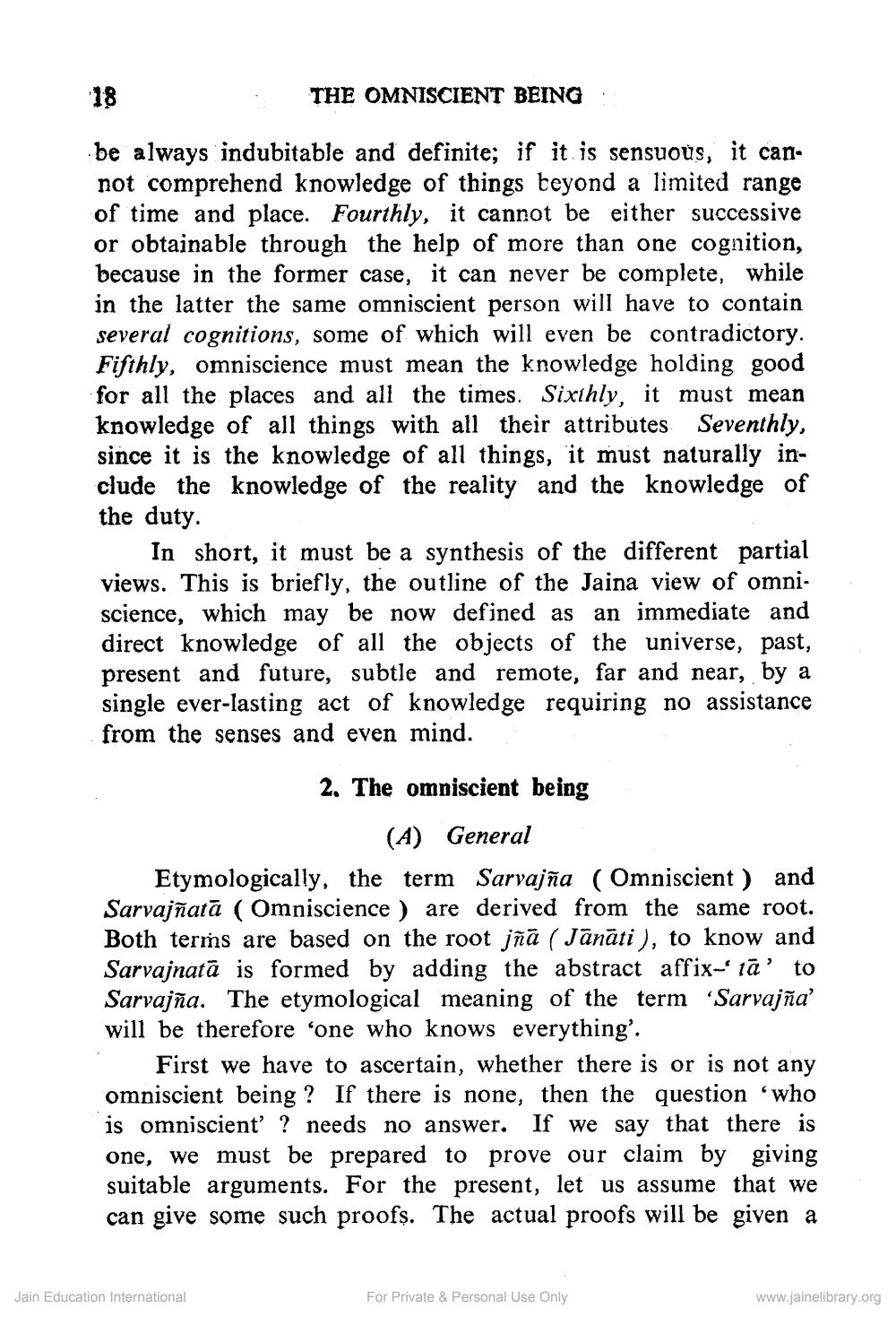________________
18
can
be always indubitable and definite; if it is sensuous, not comprehend knowledge of things beyond a limited range of time and place. Fourthly, it cannot be either successive or obtainable through the help of more than one cognition, because in the former case, it can never be complete, while in the latter the same omniscient person will have to contain several cognitions, some of which will even be contradictory. Fifthly, omniscience must mean the knowledge holding good for all the places and all the times. Sixthly, it must mean knowledge of all things with all their attributes. Seventhly, since it is the knowledge of all things, it must naturally include the knowledge of the reality and the knowledge of the duty.
THE OMNISCIENT BEING
In short, it must be a synthesis of the different partial views. This is briefly, the outline of the Jaina view of omniscience, which may be now defined as an immediate and direct knowledge of all the objects of the universe, past, present and future, subtle and remote, far and near, by a single ever-lasting act of knowledge requiring no assistance from the senses and even mind.
2. The omniscient being
(A) General
Etymologically, the term Sarvajña (Omniscient) and Sarvajñata (Omniscience) are derived from the same root. Both terms are based on the root jñā (Jānāti), to know and Sarvajnata is formed by adding the abstract affix- ta' to Sarvajña. The etymological meaning of the term 'Sarvajña' will be therefore 'one who knows everything'.
First we have to ascertain, whether there is or is not any omniscient being? If there is none, then the question 'who is omniscient' ? needs no answer. If we say that there is one, we must be prepared to prove our claim by giving suitable arguments. For the present, let us assume that we can give some such proofs. The actual proofs will be given a
Jain Education International
For Private & Personal Use Only
www.jainelibrary.org




